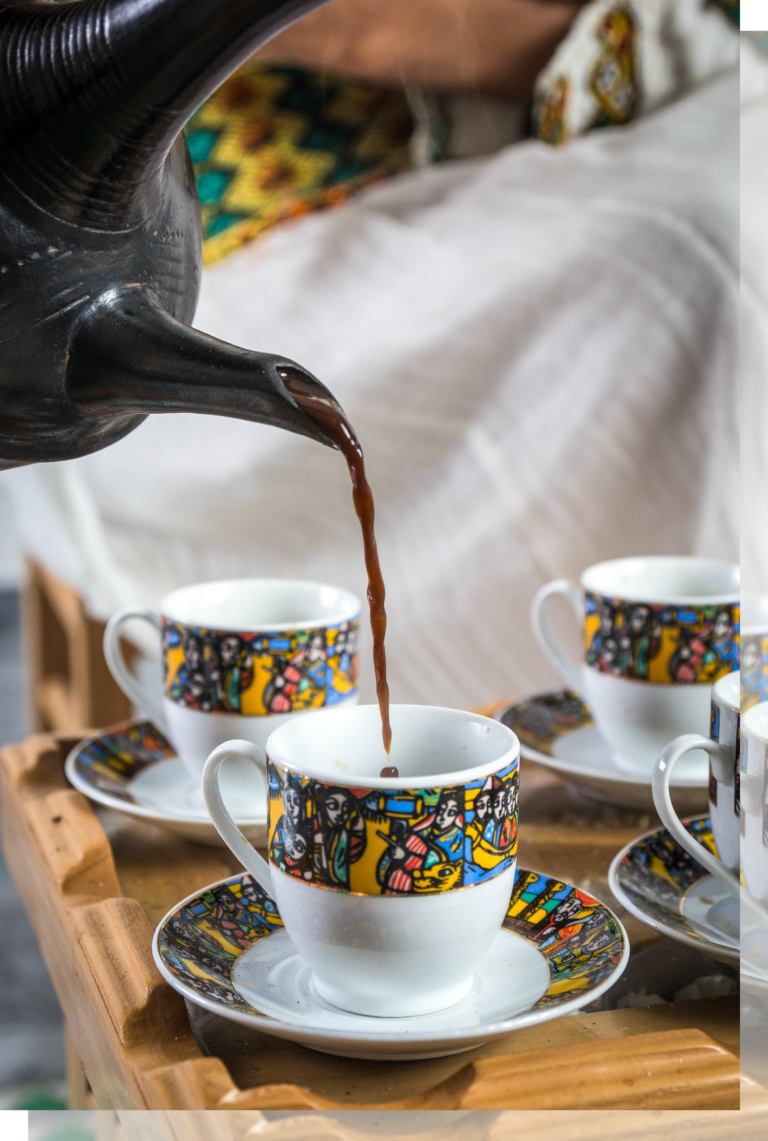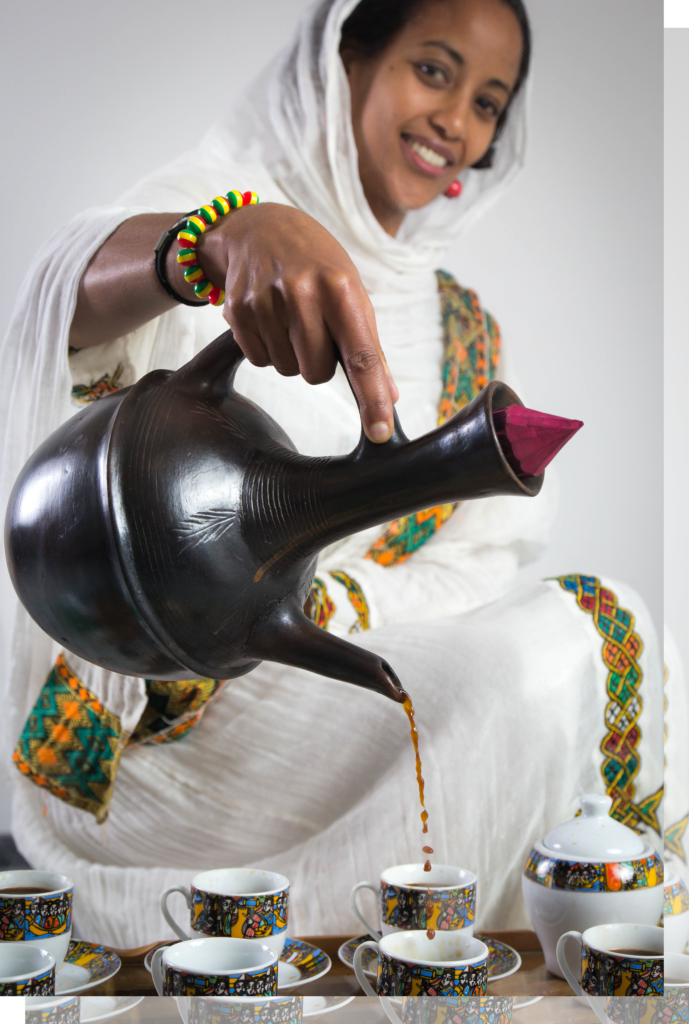Info
Menu
Kontakt
Adresse:
ENKU COFFEE EXPORT PLC
Kirkos Sub City, Woreda 8, Hous NO. 605
Addis Ababa, Ethiopia
Tel.:
Phone: +251 911 523972
E-Mail:
coffeeenku@gmail.com
Buna, the coffee ceremony where coffee is roasted, ground and brewed is essential to Ethiopian culture and society. It is a community-oriented tradition that plays a pivotal role in the culture of hospitality.


When it comes to coffee, Ethiopians have a unique and profound connection that goes far beyond its economic significance as an exporting country. Coffee holds a fundamental place in their daily lives, being the most widely consumed stimulant beverage, with nearly half of its production enjoyed locally. Remarkably, the per capita consumption stands at 2.4 kg, comparable to major coffee-consuming nations worldwide.
What makes the Ethiopian coffee culture truly captivating is the deeply rooted tradition of the Buna ceremony. This ceremonial ritual is steeped in meaning and respect, encompassing every aspect from the gracious invitation to the meticulous preparation, social etiquette, and immersive sensory experience. Typically, it is an honor for women to perform the Buna ceremony, upholding its traditional significance.
The ceremony unfolds at a leisurely pace, with no sense of haste. It commences by artfully strewing freshly cut grass and vibrant flowers on the ground and the table, accompanied by the soothing aroma of burning incense. The coffee beans take center stage as they are carefully washed and then roasted on an iron pan called „mitad“ over glowing charcoal. The roasted beans are passed around, inviting everyone to indulge in their delightful scent.
A time-honored and deliberate process, the coffee beans are then hand-ground using a wooden mortar and pestle, followed by the addition of boiling water into a „jebena,“ a traditional coffee pot. The jebena is left to brew gently on charcoal, allowing the flavors to meld and create a rich, aromatic infusion. Finally, the coffee is served in small, delicate cups known as „sini.“
The serving order is a crucial part of the Habesha culture, beginning with the eldest members of the group and concluding with the youngest. This practice reflects the values of respect, community, and the acknowledgment of elders in Ethiopian society.
In essence, coffee in Ethiopia is more than just a beverage; it is an integral part of their heritage, customs, and social fabric, with the Buna ceremony exemplifying the depth of this connection.
Adresse:
ENKU COFFEE EXPORT PLC
Kirkos Sub City, Woreda 8, Hous NO. 605
Addis Ababa, Ethiopia
Tel.:
Phone: +251 911 523972
E-Mail:
coffeeenku@gmail.com